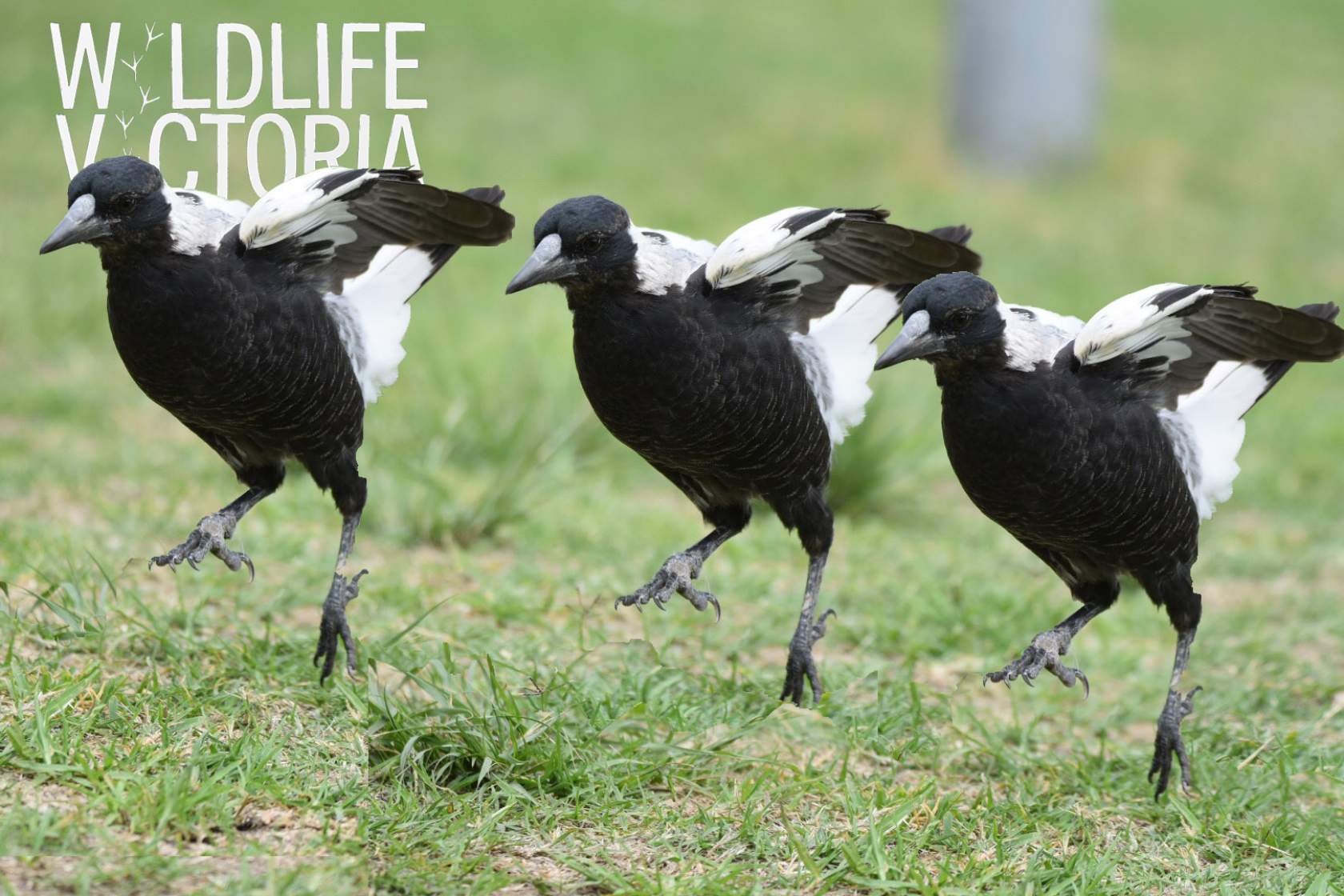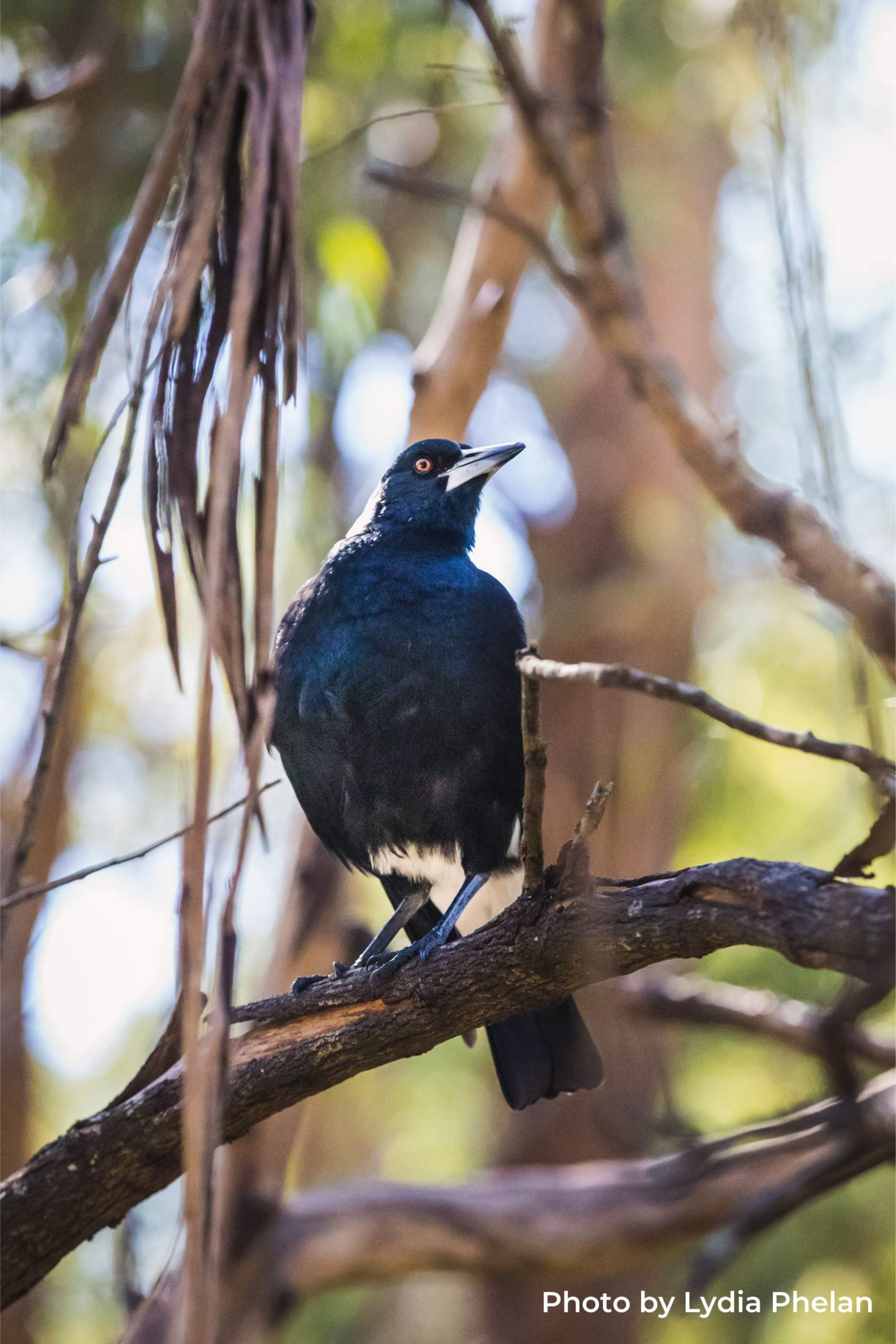
How much do you know about the Australian magpie?
Australian magpies are truly amazing. They are among the top 20 most intelligent animals in the world and have unique, human-like personality traits: they play-fight, sunbathe, swing around on washing lines, and sometimes sing their wonderful warbles simply for the fun of it.
These playful and resourceful birds have gained notoriety in Australian culture as being aggressive and dangerous, so much so that the mere mention of the word ‘magpie’ strikes terror in some people; this is all because of the dreaded ‘swoop.’
In this article, we give you the swoop, the whole swoop and nothing but the swoop about their behaviour. It’s time to turn fear into fact and do some myth-busting about Australian magpies.
Take Our Magpie Swooping Quiz
1. 75% of magpies swoop.
2. Cyclists and runners are swooped more often than walkers.
3. Waving an umbrella at the bird will deter swooping.
4. Swooping stops when the chicks fledge and leave the nest.
Read further for answers.

Swooping explained
Like humans, magpies raise families and are dedicated to protecting their young from harm. Nesting season takes place from early to mid-August to November, when females lay 3-5 eggs and then incubate them for about three weeks until they hatch. It takes about four weeks for the hatchlings to fledge* and leave the nest.
During nesting time, some magpies (mostly males) may swoop if they consider a human, dog, or other animal a threat to their family, generally within 50 meters of the nest.
They aim their trajectory at the highest point of their target, which, unfortunately for humans, means the head. Wearing hats, bike helmets or ice cream buckets on your head can help protect you, but no amount of embarrassing headwear will prevent swooping if a protective bird thinks you are a predator.
How you engage with magpies year-round will colour their opinions of you and influence whether you’ll be a target for aggression during swooping season. Ensuring that you are slow, mindful and gentle in your interactions with these highly intelligent animals in all seasons is the key to living harmoniously with them. They, like humans, will remember your face and your behaviour and treat you accordingly.
If you are swooped, keep in mind that these are parents defending their young from perceived predators; it’s understandable that they will behave in an aggressive manner if they believe you are a threat to their vulnerable young.
If you are still concerned about swooping in your area, we have some handy tips.
Here’s how to avoid the swoop during nesting season:
Walk or cycle slowly in nesting areas; runners and cyclists are attacked more often, as objects moving rapidly toward the nest are perceived as much greater threats than those that move slowly.
When passing actively nesting birds, widen the distance between you and the nest.
Alter your route to avoid any known aggressive birds during the active nesting season.
What to do if you are swooped:
Cover your head and face with your arms but do not wave them around or yell; this will only further antagonise the bird.
Remain calm, walk quickly and quietly past the nesting area and do not stop.
Carry an open umbrella, or wear sunglasses or a hat to protect your face and head while entering areas with swooping birds.
Here are the answers to our Magpie Swooping Quiz
FALSE! Less than 12% of breeding males will swoop, and only 5% of those will make contact.
TRUE! Predators move fast towards nests, so runners and cyclists are often seen as threats to young.
FALSE! Prevent swooping by engaging slowly and mindfully with your feathered neighbours in all seasons.
TRUE! Swooping stops when the fledglings are ready to fly on their own.
How did you do? Did you learn something new about Australian magpies?
*Wildlife Victoria’s Emergency Response Service receives many calls involving fledglings in Spring, as they can appear to be adult birds who are unable to fly. They tend to move clumsily, have fluffier feathers and darker beaks than adults, and will often be left unattended for hours while parents find food. In most cases, fledglings don’t need any help from us, but if you’re concerned, please call us on 8400 7300 for advice.
Read more about fledglings here.

